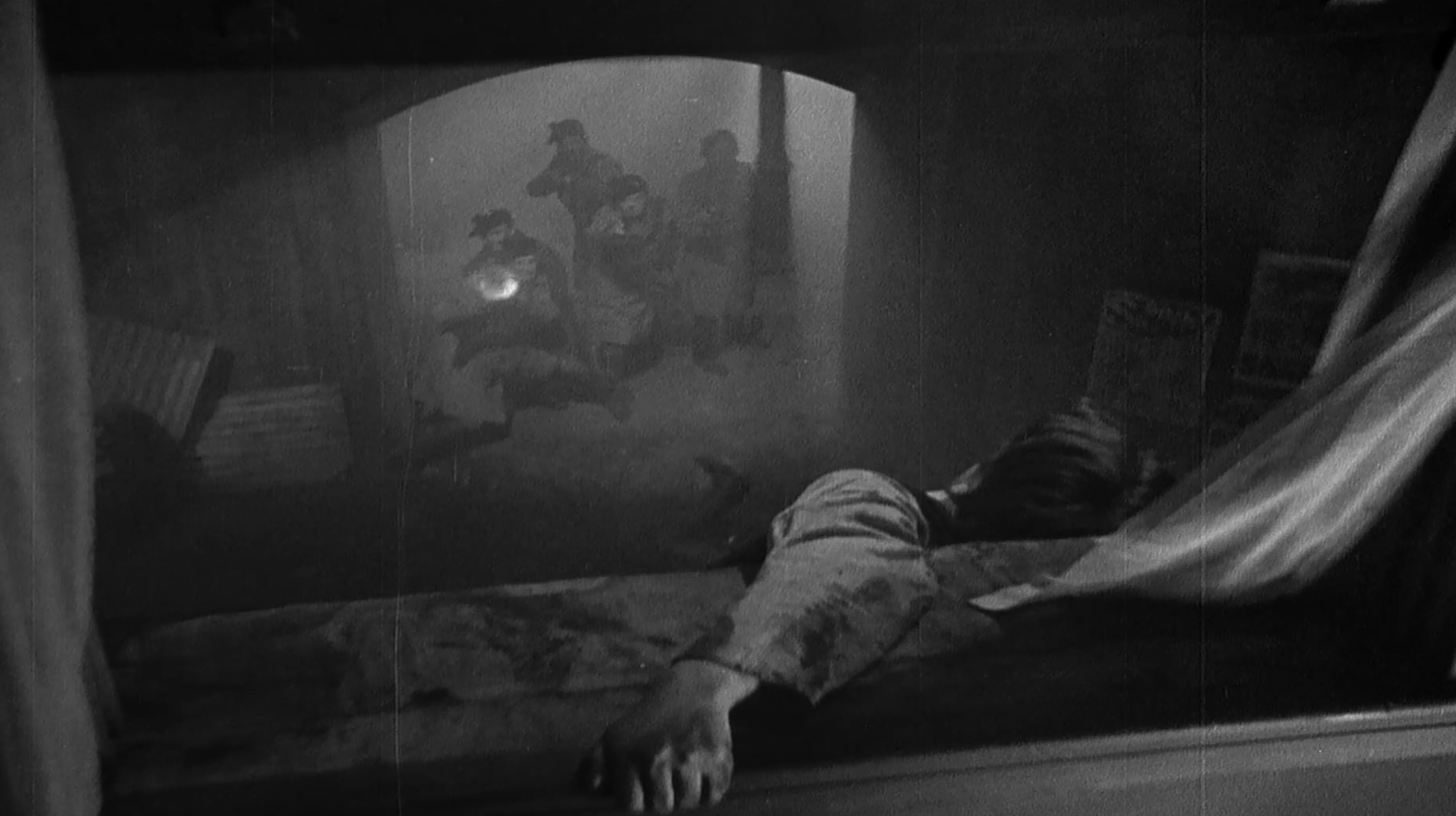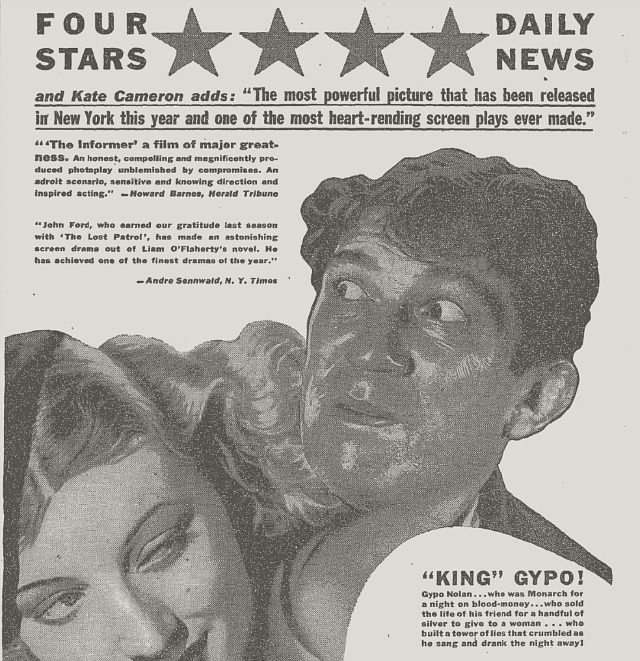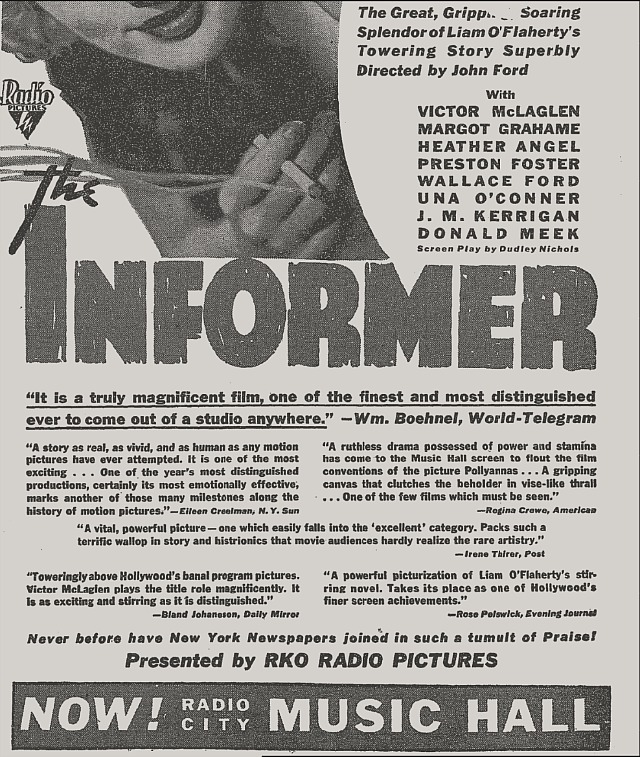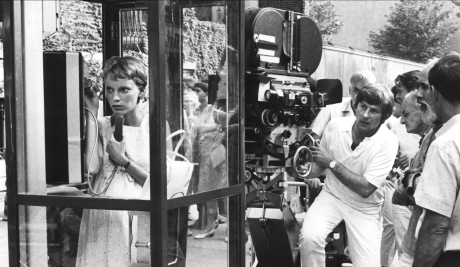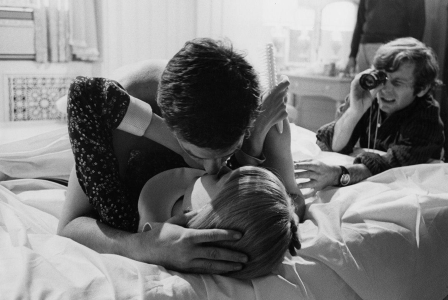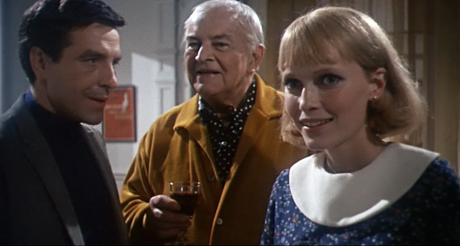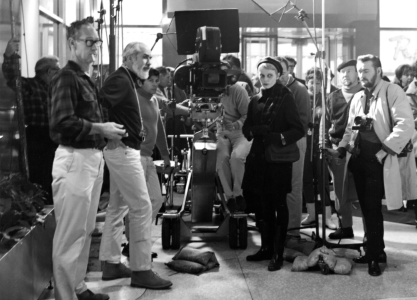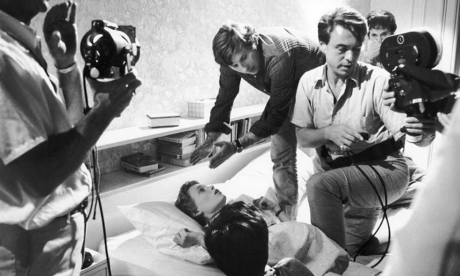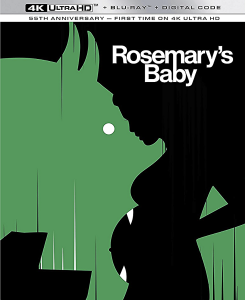This evening I tried again with John Ford‘s The Informer> (’35), and in so doing experienced something like an epiphany. It surprised the hell out of me, but there was no mistaking what I was feeling. For the first time I accepted the foolishness and rank idiocy of Victor McLaglen‘s Gypo Nolan — surely one of the most loathsome lead characters in movie history, and a pathetic, bellowing drunk to boot.
For the first time I cut Gypo a break and took off my black hooded mask.
My first viewing….good God, Ford’s classic is 88 years old now…my first viewing (late-night TV, possibly WOR-TV) happened when I was ten or eleven, something like that; my most recent before tonight was 20 years ago.
I’ve never felt anything but admiration for the various elements — McLaglen’s Oscar-winning lead performance, Dudley Nichols‘ finely-chiselled screenplay (the film only runs 91 minutes), the magnificent fog-shrouded cinematography by Joseph August (Twentieth Century, Gunga Din,The Hunchback of Notre Dame, Portrait of Jennie), Max Steiner‘s haunting score and the supporting performances by Margot Grahame, Heather Angel, Preston Foster, Una O’Connor and Joe Sawyer.
It all fuses together so well, but all my life I’ve had a hugely difficult time with the deplorable Gypo. And yet something happened this time. Something ineffably sad that found its way inside. By the end I felt so sorry for this poor alcoholic idiot that I was strangely unable to despise him. I could only shake my head in sorrow.
And that final church scene after he’s been shot four or five times in the gut, bleeding to death…that scene got me all the more. When Gypo stumbles into a church and finds Frankie’s mother (Merkel) and says with that pleading, nearly whispering, wounded-ox voice, “Twas I who informed on your son, Mrs. McPhillip…forgive me.” And the poor woman does for some reason, and then comforts him with “you didn’t know what you were doin’.” Gypo stands and spreads his arms before a crucifix, calls out to the man he betrayed and condemned to a brutal death (“”Frankie! Your mother forgives me!”), clutches his midsection, drops to the church floor and dies.
If I’d been Mrs. McPhillip I would have said, “You’ll get no forgiveness from me, Gypo. And from the looks of you, you won’t be needing any soon. Just let go…just let it go. There’s nothin’ more for it, Gypo. Just go to sleep.”
But somehow this evening, and for the first time in my life, Merkel’s forgiving eyes and words melted me down.
I thought of two relatively recent similar films (a protagonist enduring terrible guilt after ratting out a comrade) — Yuval Adler and Ali Waked‘s Bethlehem (’13) and Shaka King‘s Judas and the Black Messiah (’21) about FBI informant William O’Neal (Lakeith Stanfield) having inadvertently aided in the murder of Fred Hampton.
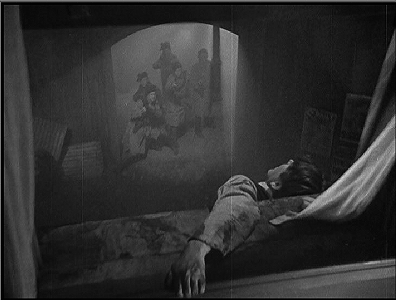
Amazon should be ashamed of itself, by the way, for streaming an HD version of The Informer with a horizontally stretched aspect ratio — it should be presented in the original boxy (1.33 or 1.37) but is streaming at 1.85 or 16 x 9 or something close to that.
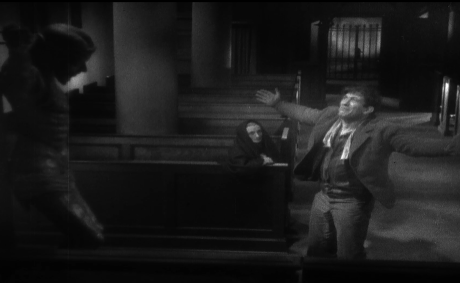
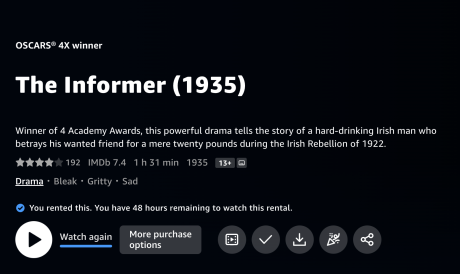
Read more

